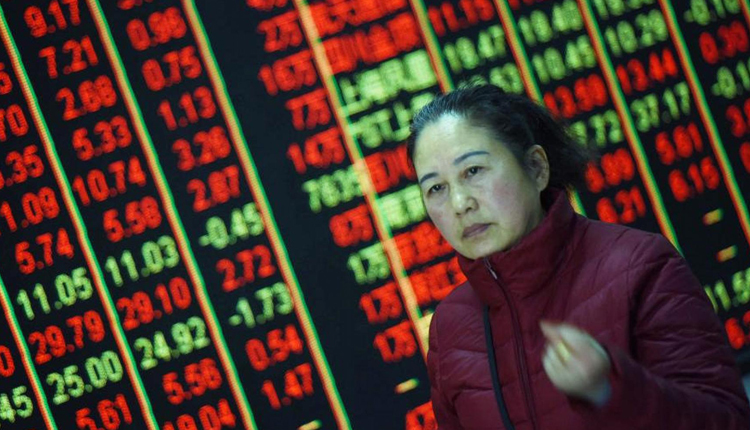Asian stock markets attempted to rebound on Wednesday, with several regional markets paring sharp losses made in the previous session that were caused by elevated fears of a trade war between the U.S. and China.
Markets in South Korea shrugged off trade-related concerns to climb, with the Kospi rising 1.13 percent as large-cap technology names traded higher.
Among index heavyweights, Samsung Electronics added 0.32 percent, SK Hynix rose 4.28 percent and steelmaker Posco gained 0.15 percent.
Japan’s Nikkei 225 rose 0.49 percent in a choppy session, trading both above and below the flat line. Consumer stocks rose, but materials, banks and insurers traded lower. Pharmaceutical stocks led gains in the afternoon, while the Topix mining subindex was the worst-performing sector.
In Australia, the S&P/ASX 200 advanced 0.94 percent, with most of its subindexes trading in positive territory. Financials rose 2 percent as oil producers also notched firm gains.
Meanwhile, greater China markets were mixed after Tuesday’s plunge. The Hang Seng Index tacked on 0.41 percent, with the services and consumer goods sectors contributing to gains. Mainland markets were biased to the downside, however, with the Shanghai composite declined 0.59 percent. The smaller Shenzhen composite hovered around the flat line.
MSCI’s index of shares in Asia Pacific excluding Japan climbed 0.58 percent in Asia afternoon trade.
Concerns over a looming trade war between the world’s two largest economies continued to linger after U.S. President Donald Trump said on Monday that he had asked the U.S. Trade Representative to identify $200 billion in Chinese goods that could be subject to additional tariffs.
China said in response that it would take counter measures against the U.S. if the latter went ahead with issuing the list of extra tariffs. “The United States has initiated a trade war that violates market laws and is not in accordance with current global development trends,” the country’s Commerce Ministry said in a statement.
“Markets have been bracing for a not ideal outcome … so it’s been a big dampening impact on sentiment,” Steven Wieting, chief investment strategist at Citi Private Bank, told CNBC’s “Squawk Box.”
“Generally speaking, the world has treated this trade war as an unknown negative that’s impacting markets widely when it’s likely to be much more specific to certain companies and have significant impact-and the U.S. is far from immune to the negatives here,” Wieting added.
U.S. stocks finished lower, but those declines were slighter than the sharp falls seen during the Asian session on Tuesday: The Dow Jones industrial average fell 1.15 percent, or 287.26 points, to close at 24,700.21, erasing all its gains made this year. Other U.S. stock indexes recorded smaller declines.
Markets in the region had sold off in the previous session, led by losses in China. The Shanghai composite tumbled 3.82 percent and closing below the key 3,000 mark and the Shenzhen composite fell 5.77 percent on Tuesday.
Concerns over the trade dispute between the world’s two largest economies also saw investors turn to safe haven assets, with U.S. Treasury prices rising in the previous session.
The yield on the ten-year U.S. Treasury note last stood at 2.89 percent from above 2.9 percent on Monday. Bond yields move inversely to prices.
In currencies, dollar prices firmed against the safe-haven yen at 110.12 at 12:33 p.m. HK/SIN. The greenback had slipped below the 110 handle in the last session.
The dollar index, which tracks the greenback against a basket of currencies, rose to 95.123.
In individual movers, shares of Australia’s Telstra dropped 5.5 percent after the telco on Wednesday announced plans to reduce employee and contractor headcount by 8,000.
The company also said it would create a standalone business unit, called Telstra InfraCo, that will include Telstra’s fixed network infrastructure.
ZTE shares traded in Hong Kong rose more than 15 percent, paring some of Tuesday’s declines after the U.S. Senate passed a defense bill that targeted the Chinese telecommunication equipment maker. Its Shenzhen-listed shares, however, were limit down 10 percent on Wednesday.
Source: CNBC


